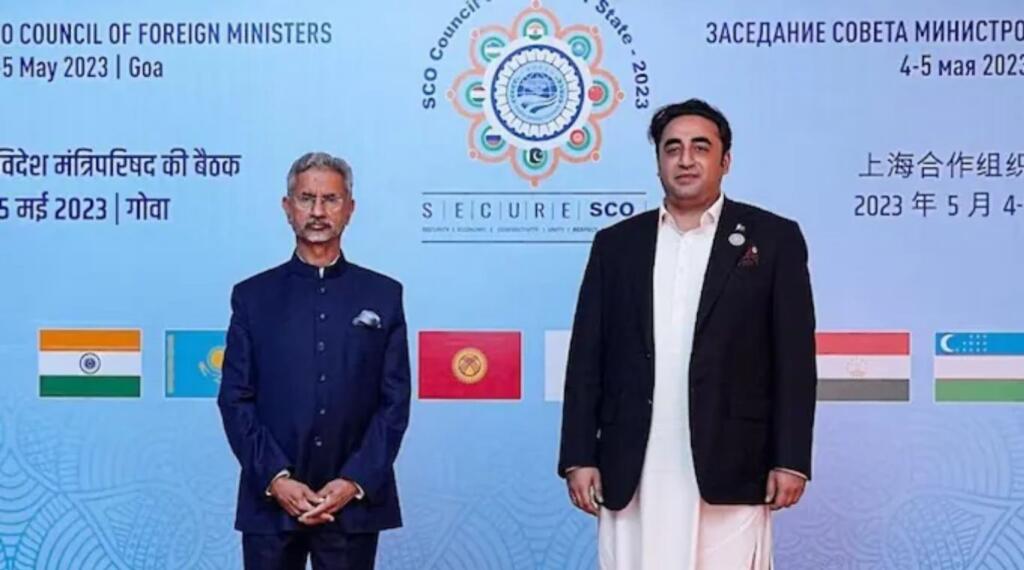Yesterday, the MEA revealed that Foreign Minister Dr. S Jaishankar will embark on a visit to Pakistan. The announcement made it clear that there is no compelling or legitimate reason for Prime Minister Narendra Modi to visit Pakistan for the Shanghai Cooperation Organisation (SCO) Council of Heads of Government (CHG) meeting in mid-October.
Islamabad has so far given no indication of a change in its frozen attitude on Kashmir that warranted a thaw in the relations which went cold after Pakistan downgraded its ties following the abrogation of Article 370.
So, there would be no point in India jumping the gun, so to say, and indicating a thaw with Modi going to Pakistan. That would have given a confusing signal to the world.
That the Prime Minister is sending Foreign Minister S Jaishankar in his place is a big enough reason for the success of the meeting in Islamabad. So far as bilateral ties go, it is up to Pakistan to reciprocate in a manner that can translate Jaishankar’s presence as a ‘thaw’.
That India decided not to send a junior minister to attend the meeting is adequate proof of New Delhi’s mature appraisal of the South Asian situation, opening a small door and leaving it to Pakistan to open the door fully.
In fact New Delhi sending Jaishankar over is nothing but a quid pro quo for Pakistan’s foreign minister attending the 2023 meeting in Goa.
At a time when New Delhi is brokering for peace in three escalating conflict situations – Russia-Ukraine, Israel-Palestine, Israel-Lebanon-Iran – it is equally mindful of restoring peace in its immediate neighbourhood that speaks volumes about India’s dynamic foreign policy.
Jaishankar’s presence is also strategic, in the sense it avoids any intention of the Pakistan-China combine to jointly raise contentiously issues had Modi been present in Islamabad.
The ball, now, is in Pakistan’s court
Pakistan is holding the rotating chairmanship of the SCO-CHG and so hosting the two-day in-person meeting on October 15 and 16. It will be preceded by a ministerial meeting and senior officials’ meetings focused on financial, economic, socio-cultural, and humanitarian cooperation among the SCO member states.
The SCO, comprising India, China, Russia, Pakistan, Kazakhstan, Kyrgyzstan, Tajikistan, and Uzbekistan, is an influential economic and security bloc that has emerged as one of the largest trans-regional international organisations.
In reality, the onus to show a mature presence at the SCO meeting lies with Pakistan. At last year’s meeting in Goa, India, Foreign Minister Bilawal Bhutto Zardari behaved in an undignified and indecorous manner.
He sounded vacuous when he sought to indelicately flay India on the issue of cross-border terrorism. He said: “Terrorism continues to threaten global security. Let’s not get caught up in weaponizing terrorism for diplomatic point scoring.”
He went on to take digs not appreciated in diplomatic circles anywhere. Obliquely referring to Article 370 abrogation, he said: “Unilateral and illegal measures by states in violation of international law and Security Council resolutions run counter to the SCO objectives.”
Short of openly calling India a communal country, he claimed: “It is imperative that wilful provocations and incitement to hate, especially on religious grounds, are roundly condemned.”
With such an attitude, he hardly endeared himself with the Indian establishment. He could have been challenged on every point, given the available fact sheet showing how Pakistan gives shelter to international terrorist organizations and is the patron of terror gangs who carry out terror attacks in India at the instance of its Pakistani masters.
Any talk of thaw is impossible for another reason. Some chapters of Pakistan’s National Security Police 2022-2026 make it impossible to have a decent climate for India to share a table with Pakistan for talks.
For instance, Section V is about ‘Defence and Territorial Integrity’. It illustrates Pakistan’s military strategy. It is mostly about India-bashing without naming the country. The policy states that with a “regressive and dangerous ideology gripping the collective conscience in our immediate neighbourhood, the prospects of violent conflict have grown immensely”. It also says how the “self-professed role of any one country as a so-called net-security provider in the wider Indian Ocean” is affecting the “region’s security and economic interests negatively.”
Though Pakistan has a terribly bleak record of action against terrorist groups on its soil, the policy identifies extremism and radicalisation on the basis of ethnicity or religion as a challenge to society. The irony is how it warns others, rather than itself, of “exploitation and manipulation of ethnic, religious, and sectarian lines through violent extremist ideologies”.
The policy gives separate space for Jammu and Kashmir, claiming that “a just and peaceful resolution of the Jammu and Kashmir dispute remains a vital national security interest for Pakistan.” Thereafter, its decades-old rhetoric takes over: “Indian occupation forces continue to undertake human rights abuses and oppression through war crimes, crimes against humanity, and genocidal acts in IIOJK [Indian Illegally Occupied Jammu and Kashmir].”
Given that Pakistan’s South Asia policies are defined by such a security policy convinces no one of Islamabad’s ‘good’ intentions to sit and talk about any bilateral dispute with India. That country is not yet ready.
